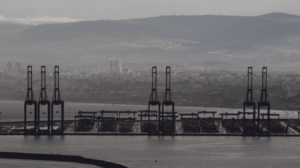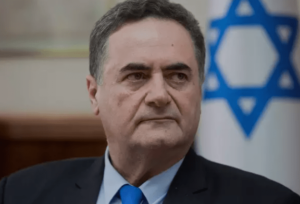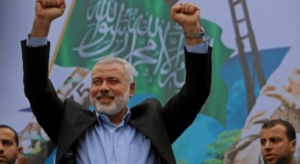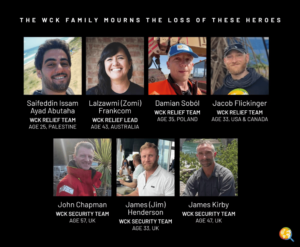Turkey halts trade with Israel
Turkey announced on Thursday that it will be ceasing all trade relations with Israel due to the latter’s uncompromising attitude towards a ceasefire in the ongoing military campaign in the Gaza Strip.
The move is an expansion of the existing trade restrictions Turkey imposed on Israel last month. Back in early April, Turkey announced the imposition of export restrictions on iron, steel, and other construction materials to Israel.
The Turkish statistical institute reported last year that the countries had a total trade of $6.8 billion in 2023, with Turkish exports accounting for 76% of the volume.

The statement issued by Turkey’s trade ministry late on Thursday said, “Export and import transactions related to Israel have been stopped, covering all products.”
“Turkey will strictly and decisively implement these new measures until the Israeli government allows an uninterrupted and sufficient flow of humanitarian aid to Gaza.”
Turkey’s President Recep Tayyip Erdogan has stepped up his criticism of Israel’s war efforts in the Gaza Strip. The trade ban on Thursday points towards deteriorating diplomatic relations between the nations since the restoration of diplomatic ties between the countries in August last year.
The countries were looking forward to greater economic collaboration and diplomatic relations until terror outfit Hamas launched its Oct. 7 attacks on Israel. Following Israel’s counteroffensive into the Gaza strip as a bid to stamp out Hamas, Turkey has joined the ranks of several other countries that have accused the Jewish nation of committing mass genocides on Palestinian grounds.
Israel FM slams Turkey on trade ban
Israel’s Foreign Minister, Israel Katz, wrote on Twitter shortly after Ankara’s announcement of the trade ban, saying, “This is how a dictator behaves, disregarding the interests of the Turkish people and businessmen and ignoring international trade agreements.”

Katz also instructed the foreign ministry to explore alternative trade partners, with a special focus on local manufacturing. He slammed Prez. Erdogan’s trade ban, saying, ‘This is how a dictator behaves, disregarding the interests of the Turkish people and businessmen and ignoring international trade agreements.”
.@RTErdogan is breaking agreements by blocking ports for Israeli imports and exports. This is how a dictator behaves, disregarding the interests of the Turkish people and businessmen, and ignoring international trade agreements. I have instructed the Director General of the…
— ישראל כ”ץ Israel Katz (@Israel_katz) May 2, 2024
Ever since the Oct. 7 attacks by Hamas that claimed 1,136 civilian lives and took 250 others hostage, Israel has mounted an all-out offensive on the Gaza strip. The Hamas-run health ministry in Gaza estimated over 34,000 killed so far, with estimates of 56,000–60,000 civilian casualties by the end of July if the war continues its course.
Israel’s war efforts have been criticised by global leaders and international organisations alike, citing the severe ‘humanitarian crisis” and “genocide” committed by the Israeli Defence Forces (IDF).
Turkey’s Prez. Recep Tayyip Erdogan had met Hamas leader Ismail Haniyeh during a peace summit held in Istanbul last month on April 20, where he commended the Hamas leader’s courage in facing Israel, all the while condemning Israel’s offensive against Gaza.

Erdogan had also compared Hamas militants to “freedom fighters,” stating Hamas had no choice but to attack Israel for the decades of oppression bestowed upon their Palestinian counterparts.
International pressure mounts as Israel refuses peace agreements
Global leaders have repeatedly asked Israel to consider peace agreements as the death toll rises, but to no avail. Israel’s PM, Benjamin Netanyahu, has refused any agreement with Hamas until every Israeli hostage is returned safe and sound. Hamas, on the other hand, has demanded the release of its thousands of militants currently held by Israel.
The ensuing deadlock has resulted in thousands of fatalities so far, with more than 1.6 million people displaced in the Gaza Strip and West Bank. International aid organisations like Doctors Without Borders, World Central Kitchen, the World Food Bank, and countless other non-governmental aid organisations have accused the IDF of repeatedly targeting civilian infrastructure like schools, hospitals, food distribution centres, and relief centres across the conflict zone.

On April 2, 7 members of the World Central Kitchen (WCK) were killed by an IDF airstrike. WCF founder José Andrés had condemned the IDF strike on its organisation members and called for greater international momentum for forcing Israel to end its military campaign in Gaza.












Comments 1